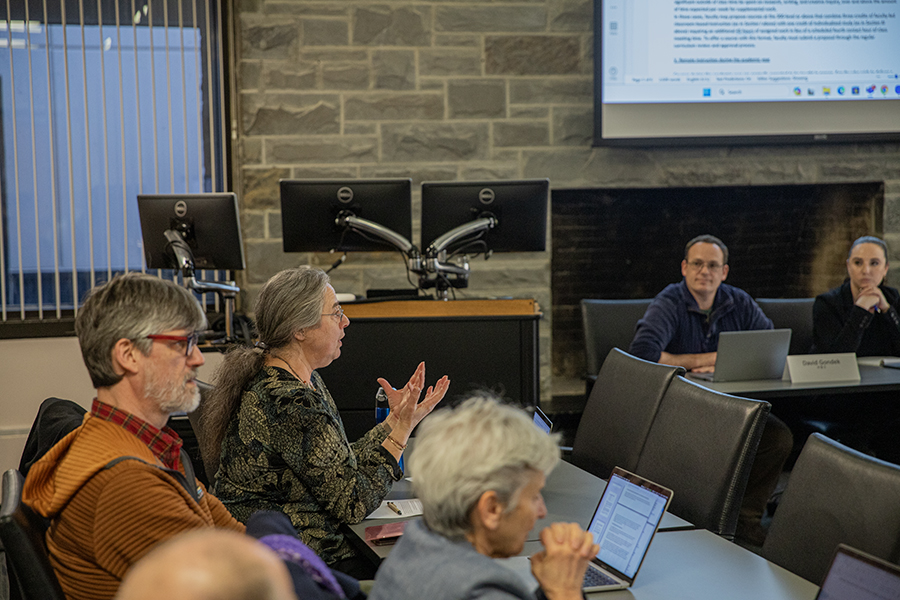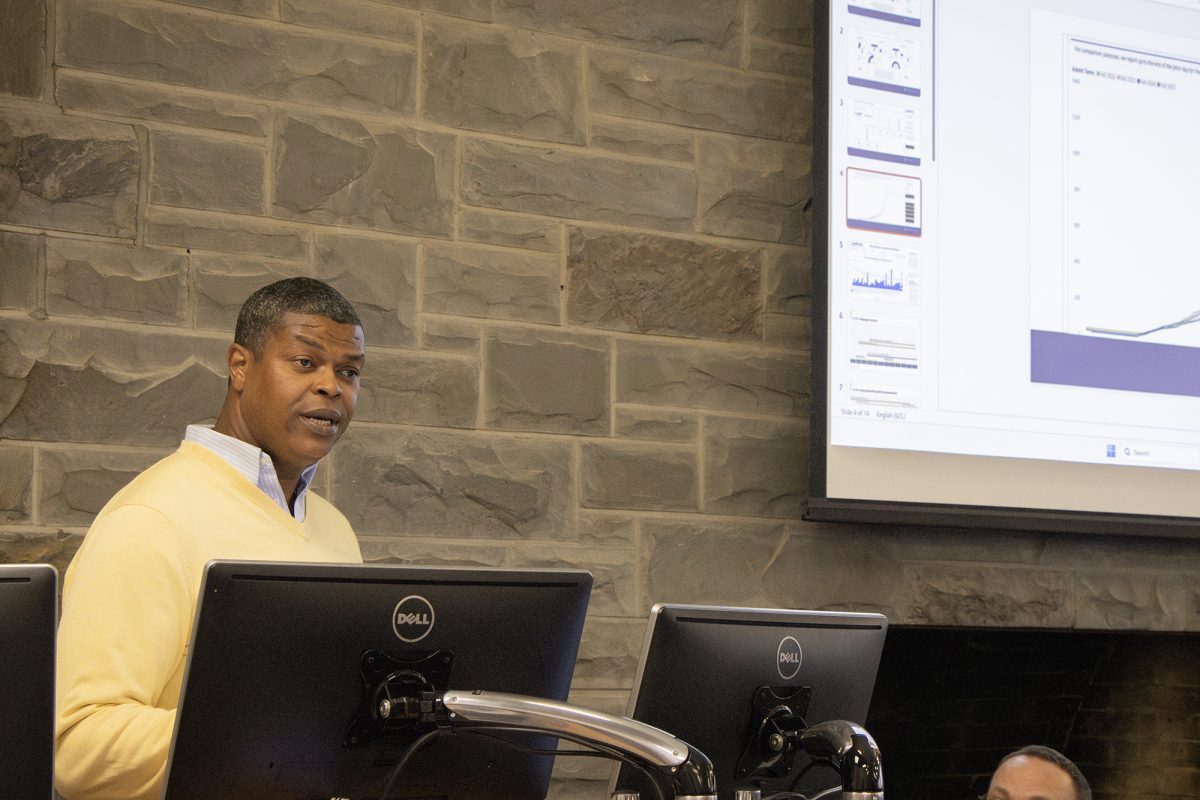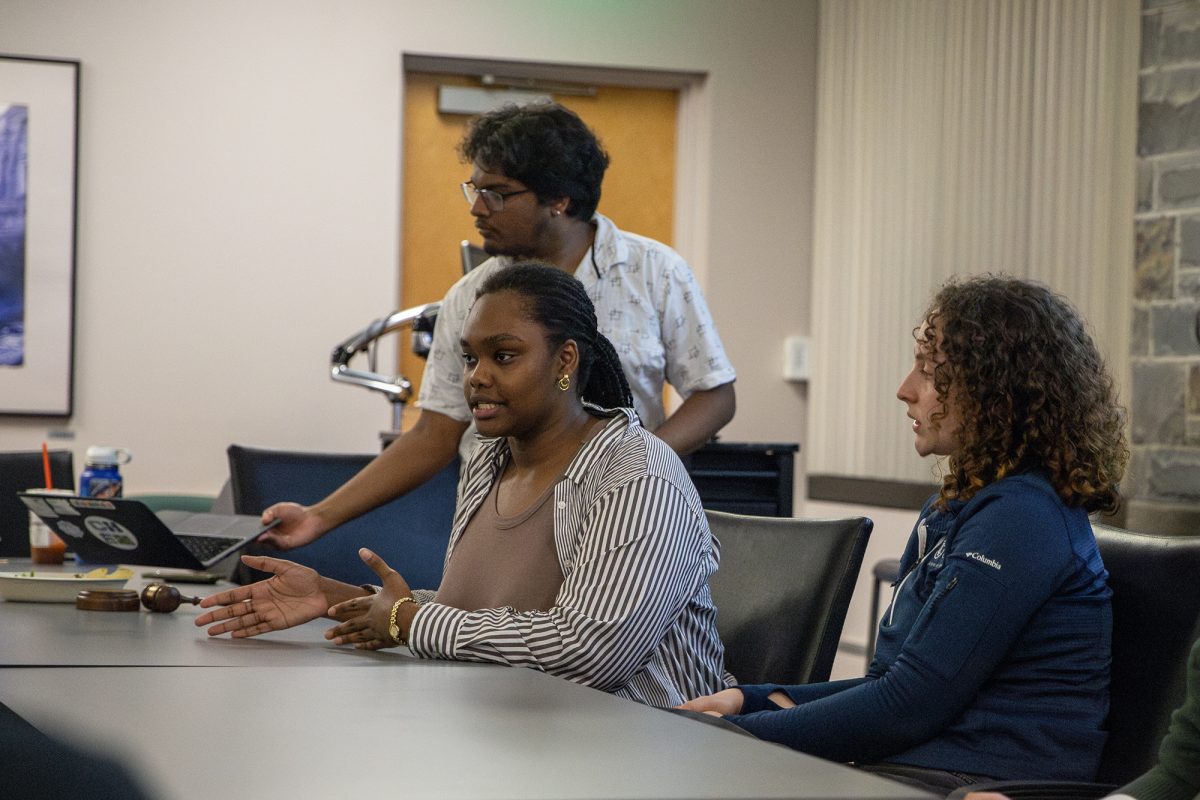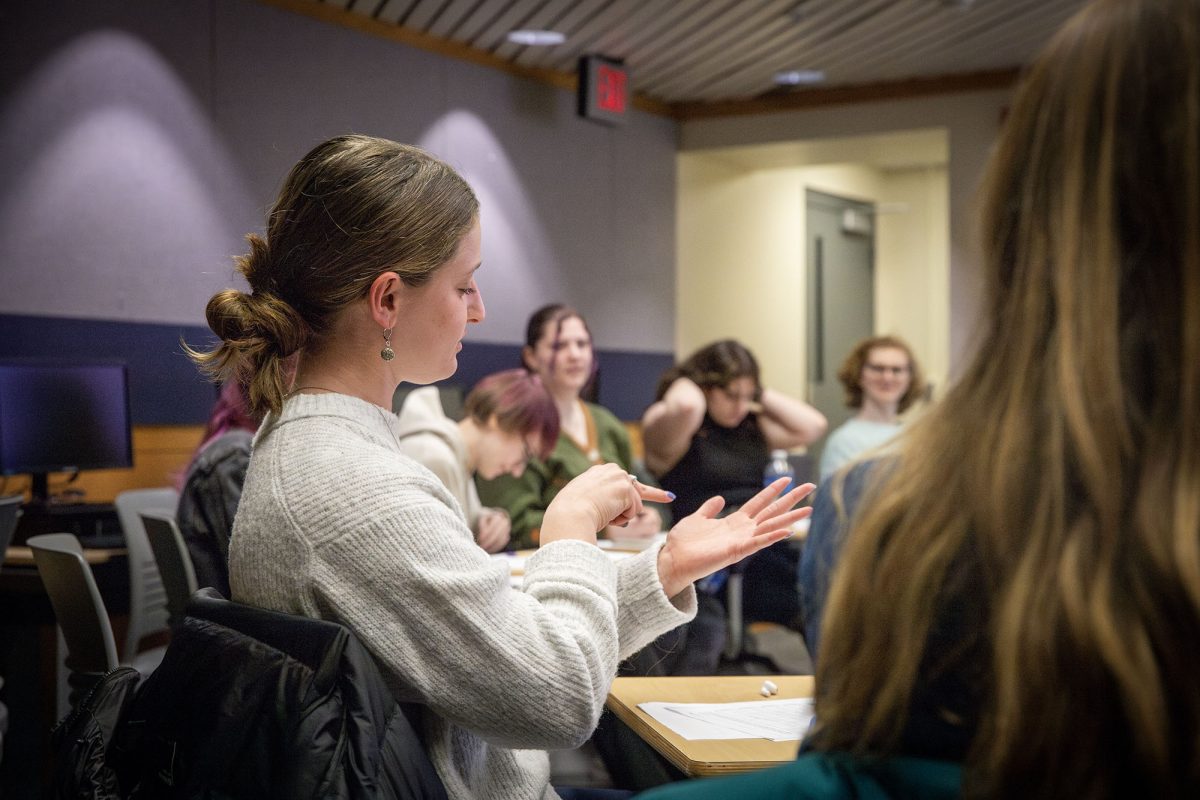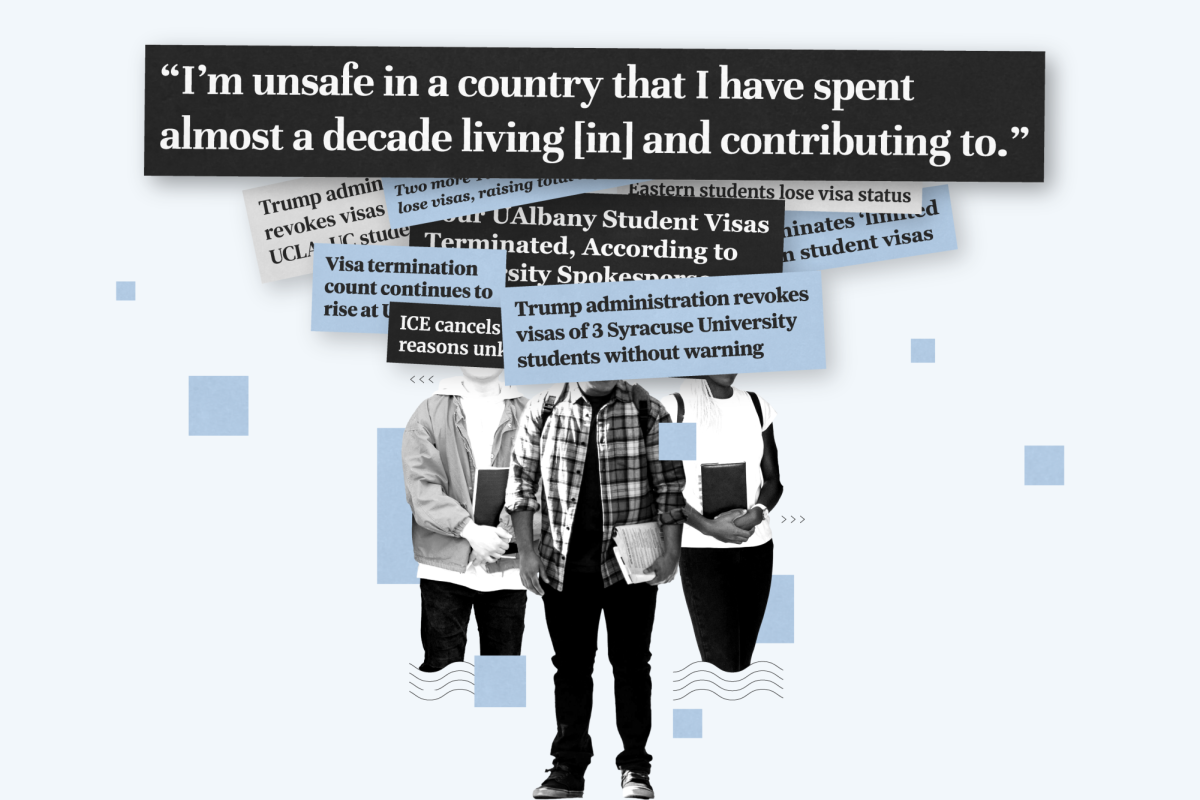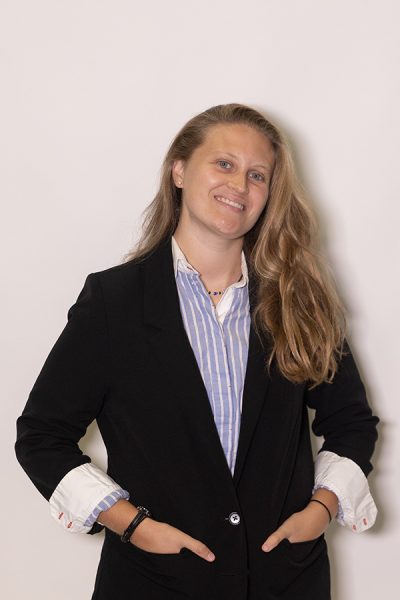The Ithaca College Faculty Council heard from Stacia Zabusky, associate provost for Academic Programs, about the college’s credit hour policy and Emily Rockett, vice president, general counsel and secretary to the board of trustees, about nominations for a faculty trustee in its Feb. 6 meeting.
Zabusky said she and her team discovered a gap in the college’s compliance with the Middle States Commission on Higher Education standards for reaccreditation. This gap was regarding the college’s Credit Hour Policy.
Zabusky said the college must clearly define aspects of teaching, including what a practicum means, what asynchronous learning expectations are and how asynchronous hours should be documented. Zabusky said that creating new definitions does not seek to make changes to courses, but to understand faculty processes for teaching.
“It isn’t to say you’re no longer allowed to do what you have been doing,” Zabusky said. “It’s trying to understand what you’ve been doing and see how important these concepts are. … There’s also an 80/20 rule. Exceptions can always be made.”
The gap is under a criteria that outlines how student learning experiences should be formulated, taught and assessed by professionals who do this in tandem with the college’s vision. These professionals are expected to be qualified, have opportunities for their growth and are reviewed regularly — along with other professional staff — by the continuity of academic programs. Zabusky also said the college must do this to stay consistent with other New York state institutions and have evidence that the college is compliant with the New York State Board of Education’s standards.
Michael Trotti, coordinator of legal studies and professor in the department of history, asked Zabusky about what type of discussion the council will be having about defining aspects of the credit hour policy. Trotti also asked if they cannot vote on it, why the council is being asked to share their input.
“Both APC and Faculty Council are being brought in [with] a, ‘We’re looking for what that will be’ way rather than, ‘We’re going to be voting on something and we have authority over’ [way],” Trotti said.
Zabusky said that because sections four and five of the Credit Hour Policy are not regulated and have no way to define how to carry them out, she wants the Faculty Council’s input to be involved in how to write a clear policy for those two sections.
Section four consists of courses combining faculty-led classroom-based instruction with advanced individualized study. Section five consists of courses combining faculty-led classroom-based instruction with advanced individualized study
Zabusky also said the Office of the Provost plans to begin implementing the policy next academic year and needs to begin working soon.
“The faculty may have other ideas about how to implement this kind of thing,” Zabusky said. “So up until that point, there is not a lot of voting … we want to make it easier and the methodology that we have for policy was hard to comply with those things.”
David Hajjar, associate professor in the Department of Speech-Language Pathology and Audiology, asked Zabusky about the asynchronous Speech-Language Pathology master’s program the department is offering beginning in Fall 2024.
Zabusky said a part of the Distance Learning Policy includes giving students clear information about how much time they are expected to spend for an asynchronous class. Zabusky said credit hours include anything a student is doing largely independently, like an internship on-site with the supervision of a faculty member or independent study. She said each hour must be documented to get credit.
Zabusky said the Office of the Provost would need to determine how the policy would affect three-credit courses and the specific durations for lessons in the School of Music, Theatre, and Dance.
Paula Murray Cole, associate professor in the Department of Theatre and Dance Performance said the School of Music, Theatre, and Dance will be seeking reaccreditation as a school of theater through the National Association of Schools of Theatre.
The council then shifted to Rockett’s discussion — who attended virtually via Zoom — about nominations for the faculty trustee position on the college’s board of trustees. The position lasts for a four-year term, begins July 1 and is not additionally compensated, except for travel expenses for BOT meetings, which will be covered by the college. The position will also require attendance at the annual Winter, Fall and Spring BOT meetings and for the faculty member selected to sit on two board committees.
Rockett said the faculty trustee will be a full voting member of the BOT but can only vote on issues and policies that do not concern their current position or position on the BOT. For example, the person in this position could not vote on candidates up for tenure or a promotion if they are also a candidate.
“You’re not representing a constituency,” Rockett said. “You’re bringing up the fact that you’re a fiduciary. You’re acting in the best interest of the institution as a whole, which may or may not differ [depending] on your understanding of what your faculty peers might want you to do.”
According to Faculty Council bylaws, the council has the responsibility to select three competent faculty members for consideration for the position by the recommended date of March 1. The selected names will be sent to the Governance and Compensation Committee of the BOT, which is charged with selecting the faculty member for the position.
Rockett said the faculty member chosen for the position must maintain confidentiality in certain discussions, like the President’s assessment. Rockett said this person must clearly delineate their goal and set boundaries as they will have access to more information because they will be a key decision maker.
Gondek said the process for selecting the three faculty members has not been written down, but in the past, the process has been in a closed session and has been done with a ranked ballot.
Rockett said the qualifications for selecting someone are determined by the Faculty Council and are similarly not written down, meaning that there are no prerequisites candidates must have or that the council must seek out.
Rockett said the faculty member selected must make philanthropic contributions to the college to attract donors. She said the dollar amount means less than the consistency of donations from BOT members.
“It’s important to the board to be able to say to their contacts that they have 100% philanthropic participation because that sends a message to possible investors,” Rockett said. “To say that the fiduciaries of the institution are invested and that the college is a worthy investment.”
After hearing about the details of nominations for the faculty trustee position, the council went into executive session for an hour and twenty minutes to reopen a discussion about promotion for procedures and feedback from their January meeting.


